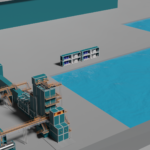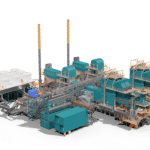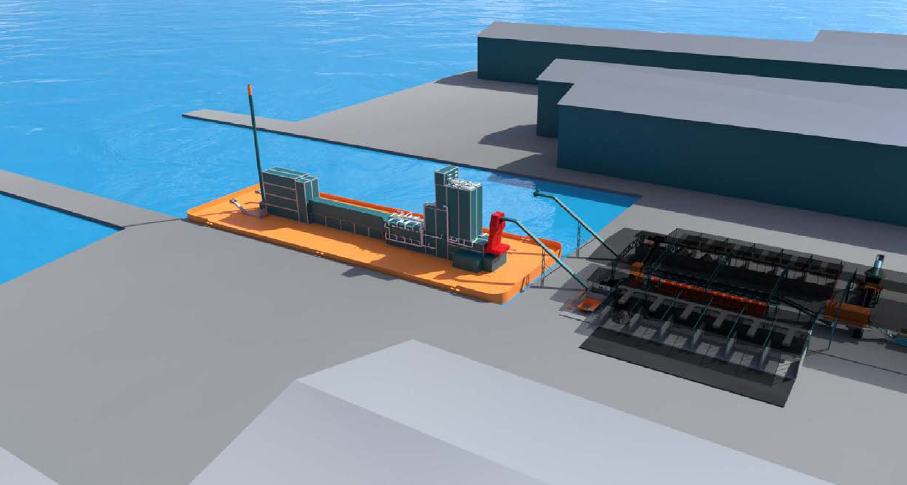Download Use Case: Floating bargeWOIMA® Power Plant
The standard wasteWOIMA® power plant is fast and simple to deliver basically anywhere in the world thanks to its modular and pre-fabricated structure.
However, sometimes the lack or cost of land prevents building the plant on firm ground. The bargeWOIMA® waste-to-energy power plant is the right solution in those cases. The plant is built in a shipyard nearby onto a barge and floated in place with the help of tugboats. Once on location, all that is required is arranging the waste fuel feed and connecting the plant into the power grid.
The bargeWOIMA® plant offers another level of flexibility in the WOIMA product family. It raises transportability and relocation capability to another level. The plant can be easily towed several hundred kilometers to its final destination. On the other hand, it can also be utilized in short-term operations, like incinerating an existing landfill or dumpsite to free space for more valuable activities.
The bargeWOIMA® power plant offers a costefficient waste reduction and power generation option to several different types of end-users; island holiday resorts, coastal cities, remote locations, and for temporary needs.
Follow us in Social Media
Waste Management
- Creating new business potential
- Simplifying waste logistics
- Reducing environmental impacts
- Matching future regulations
- Postponing landfill investments
- Green image benefits
Power & Utility
- Decentralizing power generation
- Enabling off-grid solutions
- Offering fuel & production flexibility
- Harnessing endless fuel source
- Utilizing carbon credit schemes
- Fast plant delivery
Investors
- Excellent return on investment (ROI)
- Scalable business model
- Diversified investment portfolio
- Vendor arranged funding
- Fast project roll-out
- Plant relocation option
Other Stakeholders
- Turning waste into local welfare
- Health & environmental benefits
- Local reliable energy supply
- Educational & job opportunities
- Improving living conditions
- Implementing development funding






